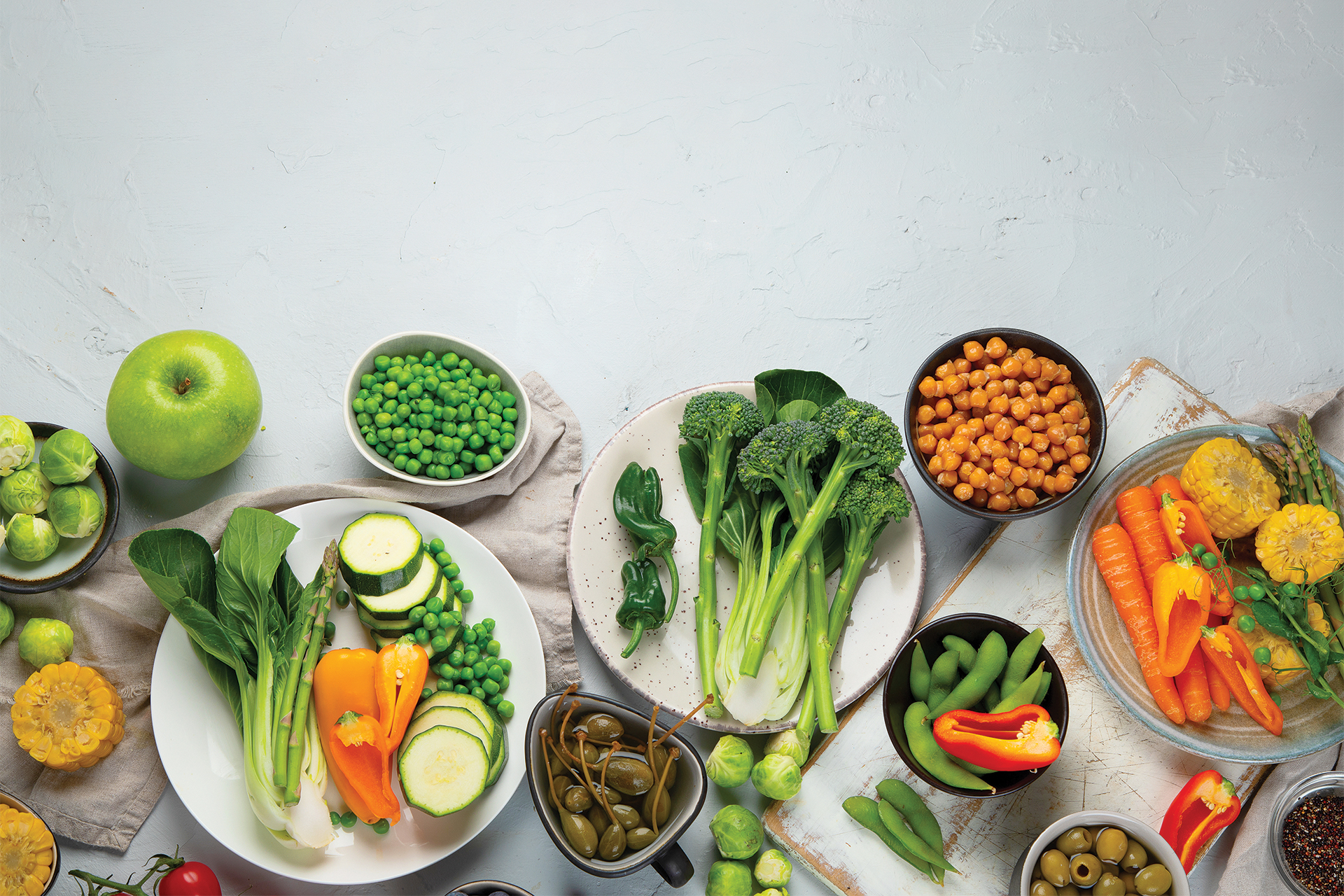“Vegan eating is really not that extreme,” Dr. Guest told viewers. “You’re not eating like a rabbit, which a lot of people still think.” As long as athletes are getting amino acids and a variety of whole foods in their meals, then they can get sufficient nutrients for muscle building and repair, Dr. Guest said. Trading chicken or steak for a meal that includes soy and beans, for example, delivers a healthy mix of protein. Dr. Guest explained: “There are many factors that go into a healthy, high-performance diet, and the addition or exclusion of animal products is playing a small role, compared to many of the other factors.”
Plant-Based vs. Animal-Based
In regard to getting adequate nutrients, Dr. Guest noted, “It really is not making a big difference [whether you consume an animal- or plant-based diet]. I actually see a little bit lower iron more prevalent in my animal-consuming athletes.” She explained that this is due to the fact that vegans are often more aware of taking their iron supplements. “In a 4-oz steak, there’s 3 mg of iron. If you need 25 mg, you would need to eat 8 steaks.” According to the research presented by Dr. Guest, there were no significant differences in iron, calcium, zinc, vitamin D, or omega-3 fatty acids intake levels between animal-consuming athletes and plant-based athletes.In fact: “There is no difference in whey compared to soy,” Dr. Guest noted, pointing to five studies as evidence. “I want to highlight a study that compared a vegan diet to a meat diet. The researchers found that a high-protein diet, exclusively a plant-based diet with protein shakes, is not different from a protein-matched diet [that consisted of] whey and meat.” The findings, she said, suggest that protein source does not affect resistance training adaptations in young men.
Dr. Guest did present one caution: “One thing we do need to be concerned about is vitamin B-12. This is something that you absolutely cannot get out of a plant-based diet. So, you do need to take a supplement. I think that’s a really important point. I recommend taking vitamin B-12 in a higher dose two to three times a week.”
Benefits of Going Plant-Based
“Plant-based diets are increasing due to growing recognition of their ability to lower many diseases,” Dr. Guest said. She explained that there are many health benefits derived from scientific studies. Prioritizing the microbiome is key, as is targeting’ metabolic health. “The microbiome loves plants,” Dr. Guest noted. She also pointed to research showing an improvement in blood flow and skeletal tissue, a reduction in oxidative stress, and improved immunity.Making the plant-based shift also has a positive environmental impact. As Dr. Guest stressed, “Every day we can make a difference by deciding what we have on our plate.”
Easier Than Ever to Shift to Plant-Based
There are more resources and options today for those opting to go plant-based. “Really, today the big money is going vegan,” according to Dr. Guest. “We have more alternatives than ever. Food technology is doing its job to try to help us move towards that and we get into cultivated meat. Growing steak, beef on a cow, has a poor return on investment. Not even in a lab, just on these non-animal intensive farms that don’t contain animals, we can contain a lot of meat that doesn’t use the skeleton or carcass of a cow to grow this on. And then people can still eat their meat.”For more on active nutrition and optimizing performance, you can view Dr. Guest’s full session on demand (access the video on www.NaturallyInformed.net). And check out more educational content from the event, including:
-
Peak Performance: Powering Up the Mind & Body
-
Sport Nutrigenomics: Personalized Nutrition for Athletic Performance
-
Glowing Interest in Ingestible Suncare
-
Gut Performance: Next-Gen Performance Boosters from the Microbiome
-
Unmet Needs? How can Sports & Active Nutrition Better Cater to
Under-Represented Groups









